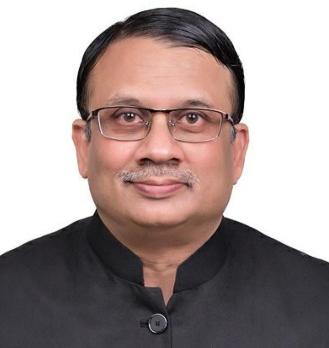
Q1. Can you share some insights into your journey from working with regulatory authorities like the Madhya Pradesh Pollution Control Board to consulting with corporate houses and environmental consulting organizations? How has this diverse experience shaped your perspective on environmental management?
Environment Management is a very diverse and wide-open field. Different stakeholders look at Environmental Management from their own angle. All stakeholders have their own roles and responsibilities, and these roles vary widely from one stakeholder to another. Environmental regulatory Authorities are mainly involved in compliances & implementation of various Environmental laws. Nowadays there is a lot of public pressure, Pressure from NGT, political pressure etc on regulatory bodies which has its own advantages and drawbacks. The Pollution Control Board plays the most important role in Environmental Management but because of their limited infrastructure and lack of competency in latest pollution Control Technology, they are not efficiently capable of managing the Environmental issues. Regulatory authorities are not much aware of the problems faced by Corporate and Industrial houses in implementation of Environmental laws. Plastic waste Management Rules is one of the examples where the Ministry of Environment had to amend their rules multiple times, because practical difficulties of implementation of these rules are not anticipated in advance by Government Authorities.
Big Corporate houses and MNCs are very serious in implementing Environmental laws but SSI and Medium scale Enterprises are still not taking adequate steps to curb the pollution. Environmental consulting organisations play a very important role in guiding the industries, to fulfil the requirements of Pollution Control Board. Concept of waste to Wealth needs more awareness among Corporate and Industrial houses, so that they treat Pollution Control as a sustainable financial model rather than a liability of compliance.
Being served for all the major stakeholders of Environmental Management , I am lucky to understand Environmental Management from all the angles and hence providing advice not only to Industries but also to Government Authorities .Teaching Environmental Engineering students and Environmental scientists in Universities is also my passion and hence I am visiting multiple universities in India to train the budding Environmentalists .
Q2. Your current role involves sustainability projects for industry and ESIA projects funded by international organizations like the World Bank and ADB. Could you tell us about a particularly challenging project you’ve worked on recently and the strategies you employed to overcome those challenges?
I am presently working on a number of Infrastructure projects in Punjab , Uttarakhand, West Bengal and Madhya Pradesh for ADB and World Bank along with a few Sustainability projects for some Big Industrial houses . Based on my Experience I can advise the Environmental professionals that you need to understand the project first. Break the project into small activities and analyse the project from cradle to grave. An Environmental Engineer needs to be a Civil Engineer or Mechanical Engineer or Chemical Engineer or production Engineer first to provide Environmental Management Solutions for that project. One needs to understand the processes and activities in detail to be able to provide Environmental solutions. Concept of Circular Economy should be embedded in your mind before providing any solutions. For Example if you want to provide Environmental solutions to the steel industry, you must start thinking from mining of Iron ores to transportation to processing to production to use by customer and finally disposing of steel after end of its life or reusing the steel scrap again to make new steel .
Q3. As a Senior Environmental Advisor, you’ve advised companies on compliance with various environmental laws. What are some common compliance issues that businesses face, and how do you help them navigate these complex regulations effectively?
Most of the Industrial houses have very superficial knowledge of Environmental laws. They are not much aware about regular amendments in laws which are happening very rapidly in the current scenario. They are also not aware of the latest and cost-effective technology available in the market for not only controlling the pollution but also increasing the productivity of the manufacturing process.
In my opinion pollution is nothing but inefficiently operating your process. If you operate your process efficiently it will not only increase your productivity but also reduce pollution at the same time. Hence my advice to industries is to relook at the processes they adopt and control the pollution automatically .
Q4. You have extensive experience in waste management, including hazardous waste and plastic waste. Could you share some innovative approaches or best practices you’ve implemented to address these critical environmental issues in your projects?
For the last 6 to 7 years I have been advising a large FMCG Corporate in Gurgaon for managing their thousands of tons of plastic waste . Basic approach starts from rethinking packaging design and packaging material selection. It also involves reducing plastic wastages at manufacturing stage as well as making consumer aware about proper disposal of plastic waste at proper place .NGOs and Municipal bodies were involved in collecting the plastic waste and taking it to recycler .We have converted thousands of tons of plastic waste into useful products such as plastic granules, dust bins , plastic furniture , buckets , tiles etc .Similarly small amount of plastic waste was converted into oil and for making Roads .Plastic waste which was very much contaminated was processed and used in waste to energy plant to convert plastic waste into electricity .
Q5. Your background includes work in Environmental Management Services (EMS) and handling responsibilities related to environmental consultancy. How do you see the role of EMS evolving in the context of today’s sustainability challenges and the increasing emphasis on ESG (Environmental, Social, and Governance) criteria?
EMS plays a huge role in the ESG strategy of any corporate house or any Institution. To achieve the sustainability of any Organisation, it should not only be financially viable but must also incorporate Environmental, Social and Governance related issues in its day to day operations and long term policy. Only profit oriented organisations have no future unless and until they take care of the Environment concerns , their staff , their vendors and the surrounding communities along with compliances of various Environmental and Labour laws .
EMS has a major role to play in ESG Strategy because of Global warming issues and SDG targets by the UN. Control of GHG Emissions plays a significant role in achieving the control of Global Temperature increase, here again EMS plays a significant role. EMS also plays a major role in achieving Circular economy and promoting recyclability of waste.
Q6. During your time as Corporate Head Environment at RSPL Group, you oversaw the implementation of various environmental rules and regulations across multiple manufacturing facilities in India. What were some of the key strategies you used to ensure compliance across such a large and diverse operation?
My basic strategy remains very simple i.e., to train the production people and convince them that you are wasting your products and raw material in the production process if you are not operating your process effectively and efficiently. I have asked them to change the technology to get better productivity and less pollution.
Similarly fear factor among production people also plays a very important role in ensuring them to comply with Environmental standards. It is the duty of the Environmental Manager to convince production people that noncompliance with Environmental laws may result in closure of their plant at any time by the pollution Control board. Combining above two strategies gave me dividends leading to better Environmental Management across 40 manufacturing facilities Pan India .
Q7. Could you elaborate on your experience in environmental awareness? How important is it for organizations to prioritize environmental awareness, and what role does effective communication play in achieving sustainability goals?
Environmental awareness is a very important role in achieving EMS targets. Each person should be trained to know that one plays a very important role in achieving the Environmental goals of the organisation. One must be convinced that you can play an important role not only for your organisation but also for the country as well as the entire globe. Small steps taken by everyone plays a significant role in Sustainability of any organisation.
I generally give the example of Indore city which has been awarded the cleanest city of India for the sixth time in a row. Indore has been awarded as cleanest city not only because of its administration but largely because of awareness among citizens of Indore about Environmental issues. Indore Municipal Authorities have spent a large chunk of the budget of Solid waste Management in generating awareness among the citizens of Indore.
Q8. With over three decades of experience in the field, you’ve witnessed significant changes in environmental regulations and practices. What trends and developments do you foresee in the environmental management sector in the coming years, and how should businesses prepare for them?
Environmental Regulations are changing very rapidly in India. At the start of my career I was handling only air and water pollution related issues, but now with changing times I have to deal with Hazardous waste, Solid waste, E waste, Construction waste, Battery waste, Plastic waste, Oily waste etc . Hence this list is going to increase further in future.
EPR (Extended producer Responsibility) will be the buzz word of the future. All businesses should prepare themselves for taking care of their waste on their own throughout the life cycle of the product. Responsibility will not end just by selling their product into the market, but they will have to take care of the responsibility of their packaging waste and for the end-of-life disposal of their product. They will have to recycle their product to achieve the Circular Economy policy of Government of India. Recycling Industry will be the next IT Industry in another 20-year time.
Hence all businesses should start to make their Sustainability report from an Experienced ESG Professional to make their business survive in changing times. They also need to make an action plan to comply with stricter Environmental laws and also achieve the SDG Goals of the United Nations.





 Allow notifications
Allow notifications
